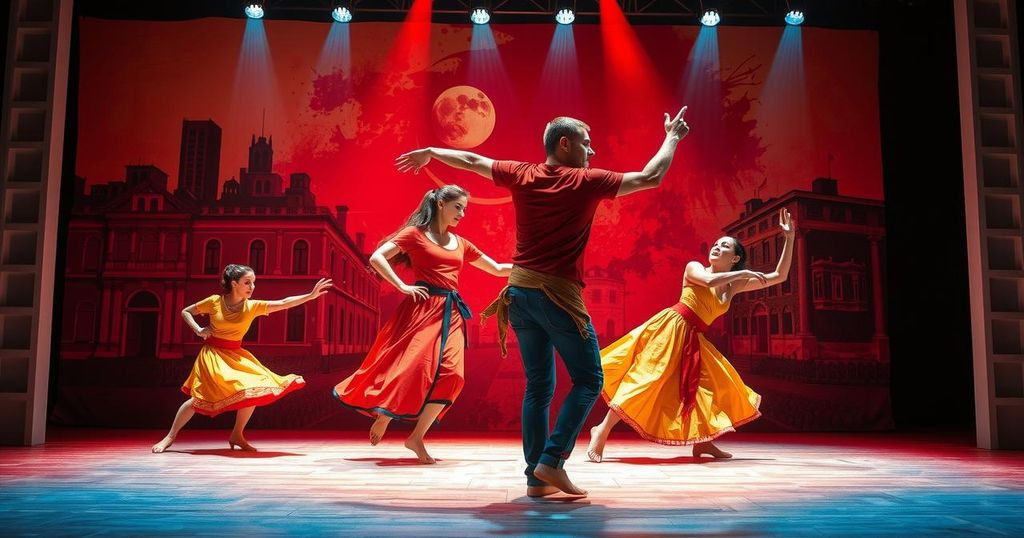Lebanon’s Theatres Resurge: Art Amidst the Shadows of War

Lebanon’s theatres are reviving post-conflict with performances addressing migrant injustices and personal trauma. Ali Chahrour and Fatima Bazzi lead this movement, expressing the harsh realities of war through their art. Despite an economic crisis, their works serve as a testament to resilience and hope.
Beirut, Lebanon – The theatre scene in Lebanon is bouncing back, even though the scars of last year’s war linger for many. Artists like Ali Chahrour have decided that the stage is where they will express their truths. Chahrour, who is a playwright and choreographer, premiered his performance in early May, drawing inspiration from the migrant workers caught in the conflict. His project, born during the war, seeks to project the voices of those often left unheard.
Chahrour’s work, titled “When I Saw the Sea,” features Ethiopian domestic workers recounting their harrowing tales through dance and dialogue. This production honors the migrant women who faced death or displacement during the recent two-month conflict between Israel and Hezbollah. Many workers found themselves in NGO shelters after their employers fled bombings. Others became homeless amidst the relentless attacks across various regions of Lebanon. Chahrour expressed that his interactions with these women fueled his resolve to continue creating art: “meeting with these women gave me the strength and energy to keep going.”
Another artist shaped by the aftermath of the war is Fatima Bazzi, whose play “Suffocated” also debuted in May. Bazzi, who faced the harsh realities of displacement from her southern Beirut home, revised her work to reflect her personal ordeal of seeking refuge in Iraq. The original story, which highlighted the struggles of a woman against her abusive husband, morphed into a narrative enriched by her experiences. Bazzi maintained long-distance connections with her cast via video calls, allowing them to bring their collective tension and distance to the performance.
During the show, unexpected interruptions by bomb sounds implanted a dose of harsh reality, compelling the characters to react as their minds raced to determine the latest impacts of the conflict. For Bazzi, working on this play was not just about art; it became a channel for catharsis. “We were able to express the things we felt and went through, serving as an escape and therapy,” she noted, emphasizing the necessity of art in turbulent times.
Despite the theatres reopening, Lebanon grapples with a profound economic crisis that began in 2019, creating additional challenges for local creators. Omar Abi Azar, the founder of the Zoukak collective, reflects on the broader implications of war on their art. “We postponed an entire festival due to the war,” said Abi Azar, whose own piece about personal loss during Lebanon’s civil war was similarly delayed.
The collective’s latest production, “Stop Calling Beirut,” deeply resonates with memories of his brother and their childhood during the civil conflict. Reflecting on their identity shaped by war, Abi Azar stated, “We are children of war. We were born, raised and grew up in the heart of these crises. This reality has not brought us down; it pushes us to find hope through art.”
In essence, Lebanese theatre not only bears witness to the trials faced by its people but serves as an unwavering platform for resilience and expression.
In summary, the Lebanese theatre scene is stepping back into the light after a year marred by conflict. Artists are channeling their experiences into powerful performances that reflect personal and collective trauma. Chahrour and Bazzi have both transformed their wartime experiences into art, highlighting the resilience of the human spirit. While facing economic challenges, their dedication reminds us that art continues to heal and illuminate amidst adversity.
Original Source: www.france24.com








